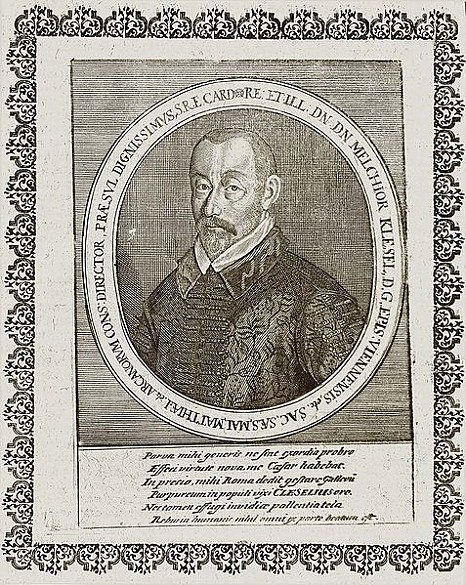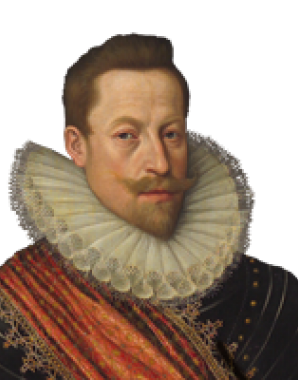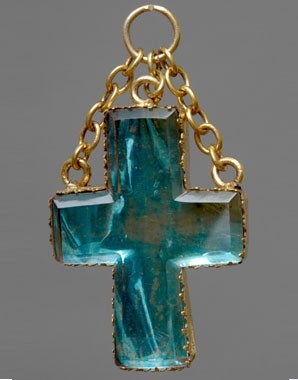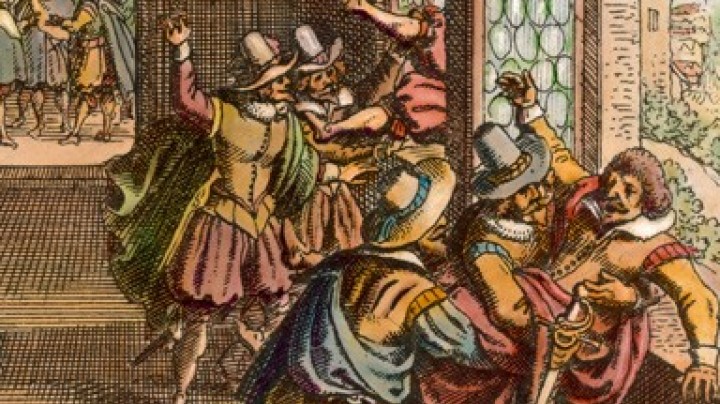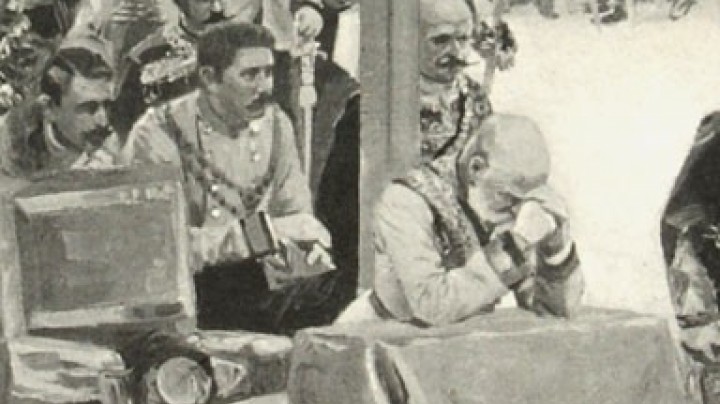Tertius gaudens – when two quarrel, a third rejoices
The Counter-Reformation was closely linked to political interests, as is particularly evident in the person of Melchior Khlesl, the man behind the scenes in the quarrel between the Habsburg brothers.
Melchior Khlesl, who was later to become a cardinal, played an important part in the quarrel between Rudolf II and Matthias. Having converted from Protestantism to Roman Catholicism, from 1590 onwards he acted as Privy Councillor to Rudolf’s court in Prague, only to offer his services ten years later to the latter’s brother Matthias, who was still imperial governor of Upper and Lower Austria at the time. In this position, Khlesl attempted to eliminate Protestant influence in politics by dismissing all Protestant court officials and replacing them with Catholics. Khlesl himself travelled from town to town ordering people to attend church, with dire consequences threatened in cases of non-compliance: his ‘reform commissions’ were accompanied by soldiers. Khlesl also demanded that the population profess Roman Catholic faith as a matter of record or else emigrate, which many Protestants did, moving to Franconia, Nuremberg or Regensburg. Others converted in order to retain their family estates. This meant a strengthening of the political power wielded by the Habsburg monarchy, as only those who belonged to the Roman Catholic Church were able to gain admittance to the Court.
At the same time, however, Khlesl advised Matthias to ally himself with the Protestant Estates and subsequently to topple his brother in Prague. In a counter-move Rudolf issued the so-called Letter of Majesty granting religious freedom to the Bohemian Protestants in order to gain their support, but even so Matthias managed to attack Prague twice.
Although Khlesl had succeeded in becoming unpopular with friend and foe alike, until the Defenestration of Prague in 1618 he stubbornly clung to his ‘policy of compromise’. While the Pope strongly advocated his policy in the strife between the Habsburg brothers – Khlesl was appointed Bishop of Vienna in 1614, he gradually lost the support of the Catholic Habsburgs. Finally, in 1618 he was seized at the imperial residence in Vienna, the Hofburg, by order of the emperor’s brother, Archduke Maximilian III of Tyrol, and Archduke Ferdinand, and imprisoned in Tyrol, eventually being reinstated as Bishop of Vienna in 1627.
